Buy or gift a stand-alone digital subscription and get unlimited access to dozens of back issues for just £18.99 / $18.99 a year.
Please register at www.exacteditions.com/digital/cornucopia with your subscriber account number or contact subscriptions@cornucopia.net
Buy a digital subscription Go to the Digital EditionOsman Streater recounts a remarkable piece of unrecorded history: the wartime friendship between the future Pope John XXIII and his great-uncle Numan Menemencioğlu, Turkey’s Foreign Minister from 1942 to 1944. The most important area of their joint work is one that is not mentioned in histories official or unofficial: they saved about 100,000 Jews from the Nazis
Soon after the white smoke went up at the Vatican Conclave of 1958, soon after the new Pope began, in the words of Time magazine, throwing open the windows of the Holy See, my cousin Ayşegül, then at Heathfield boarding school in England, composed a letter addressed to Pope John XXIII. In it she wrote: “Do you remeber me? I am the great-niece of your friend Numan Menemencioğlu. My grandmother, mother and I all lived with him in Ankara and then in Paris. He was so pleased when you followed us to Paris as Papal Nuncio. But did you know that he died last February? I loved him so much and I cry for him.”
In English boarding schools, especially those for girls, it used to be the custom for the authorities to examine incoming mail to make sure it was suitable. So there was a commotion when, a couple of weeks later, a letter addressed to Aysegül arrived in a magnificent envelope bearing the papal seal. Inside, they found an ornate letter signed Jonnes XXIII.
He wrote: ‘Of course I remember you. Do you not remember how much I would always say “Io amo i turchi”? I love the Turks but I especially love Numan and his family, who did so much for me in Turkey and then in Paris. Numan used to tease me by saying that I was the real Turkish Ambassador in Paris. I heard about his death and was very sad. You tell me that you cry for him. I want you to know that I pray for him. And I want you to promise to be worthy of him in your life, for which I send you my blessing.’ The school authorities’ stuffy reaction was to mutter: ‘Hmmm. What’s the new Pope doing writing to a Turk? She’s not even a Christian.’
In Peter Hebbelthwaite’s 504-page biography of John XXIII, there is strangely only one mention of my great-uncle Numan Menemencioğlu. Nothing is said of him in the chapters describing Angelo Roncalli’s nearly ten years in Turkey as Apostolic Delegate from 1935, even though Numan was Secretary-General of the Foreign Ministry when he arrived and then, from 1942 to 1944, Foreign Minister.
Numan gets his only mention when Hebbelthwaite describes Roncalli’s first official function in Paris at the Elysée: ‘He had a pleasant surprise. There was a familiar face in the crush. Menemencioğlu, the Turkish Ambassador, had been telling everyone what a splendid fellow Roncalli was and basked in the glory of having helped him to prepare for his present mission. Since the Turks had paid no attention to him while he was in Turkey, here was a paradox that needed some explanation.’ Despite observing that an explanation is needed, Hebbelthwaite’s Jesuit training fails to push him to find one.
After being shipped from Ankara to boarding school in Engliand and in the early 1950s, I had wonderful holidays at the Turkish embassy in Paris… I can therefore lay claim to childhood memories of Roncalli coming round to visit Numan, when he would kiss his hand in the Turkish style. That, as Peter Hebbelthwaite never discovered, was how the two men always met: in private. Roncalli found Numan’s household a good place to relax in, and in Paris, as we now know, with his problems with worker priests on the one hand and with intellectual priests like Teilhard de Chardin on the other, Roncalli clearly needed to get away now and then.
Roncalli loved most things Turkish – even modern Turkish music. When Numan took him to the first performance in Paris of Adnan Saygun’s Yunus Emre oratorio, both performers and audience were soon entranced to see the Nuncio enthusiastically beating time. Above all, Roncalli loved Turkish food. Böreks were a favourite of his, as were stuffed vegetables, especially kabak dolması (stuffed marrows). Sometimes, when he felt tired, he would call for the embassy chef and ask him to cook some lapa (rice congée). Roncalli would say that lapa demonstrated that the Turks were a truly civilised people: in what other country, he would ask, do they have a dish designed to be light on the digestion when your body is tired? Not content with the food he ate on his visits, he scandalised the French chef at the nunciature in Paris by ordering him to report to the kitchens of the Turkish embassy to learn how to cook his favourite dishes.
Roncalli went on in 1953 to become Cardinal-Archbishop of Venice, where Numan went to stay with him, then to become Pope in 1958. The historic achievements of his pontificate have been much written about. What has not been written about is the important work that Roncalli and Numan did together during the Second World War, in which the unofficial nature of their friendship was a great help – not least because Roncalli did not exactly stick rigidly to the official Vatican line in foreign affairs.
The most important area of their joint work is one that is not mentioned in histories official or unofficial: they saved about 100,000 Jews from the Nazis and from other fascist regimes in Europe. Together in their desire to save lives, they were also as one in their search for a negotiated peace, often scorned, and in their even more scorned opposition to the Allied policy of unconditional surrender, based as it was on making a present to the Soviets of the whole of eastern Europe.
Roncalli was particularly horrified at the potential fate of Polonia Semper Fidelis, the ever-faithful Catholic Poland. He had organised a committee in Istanbul to help Polish refugees on the very day that Warsaw fell to the Germans, September 28, 1939. Later Numan became convinced that the British Foreign Secretary, Anthony Eden, wanted to add Turkey to the parcel of eastern European countries to be offered to Stalin for his delectation.
To give an idea of the kind of person Numan was, and of why the man who would be called Il Papa buono was attracted to him, I cannot resist telling a story from my childhood. Newly arrived at prep school in Somerset in the early 1950s, I had caught flu and was being cared for in the sanatorium by two young matrons. I heard them excitedly discussing their forthcoming trip to Paris in the school holidays. It was to be their first trip abroad and they would be staying in a small hotel on the Left Bank. Well, it was going to be my first school holiday staying with Numan; and as by then I had learnt that the thing to do in England was to invite people to tea, I very grandly invited the matrons to take tea with me in the Turkish embassy. But then, in Paris, I felt guilty, and confessed to Uncle Numan about my invitation, saying that I would of course telephone the girls’ hotel to cancel it. Numan said: “Certainly not. It will go ahead.” The idea had taken his fancy…
See David Barchard’s tribute to the late Osman Streater, who died on November 22, 2013. The obituary is also reproduced on the Levantine Heritage website.
London’s Islamic Sales Week, Washington’s textile exhibitions, New York’s Mughal jewellery, Ara Güler’s Turkey in black and white and the Biennial in Istanbul
American-born Carla Grissmann wrote Dinner of Herbs, her portrait of an isolated hamlet in central Anatolia, to assuage her loss when she was forced to leave at a few days’ notice. She talks to Maureen Freely of her love of remote places and people.
Soup, the most elementary form of cooking, was perhaps the starting point for man’s culinary adventure. Refined over time, evolving into consommés, veloutés and bisques, it has entered the rarified realms of haute cuisine.
More cookery features
Home to the world’s oldest settlements, land of biblical prophets – the Tigris and Euphrates basin is a fabled but forgotten frontier. In a 30-page celebration, Manuel Çitac captures its splendour in photographs, while Min Hogg keeps a wry diary on her sortie to this hard-baked corner of Anatolia
In the first of a series on the great wines of Turkey and its ancient dominions, Kevin Gould visits Gallipoli. A land of heroes from Homeric times to the First World War, the peninsula has also for 3,000 years prided itself on its wines.
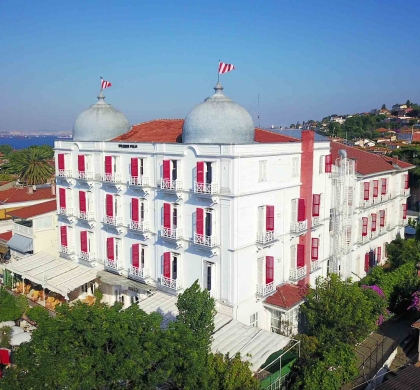
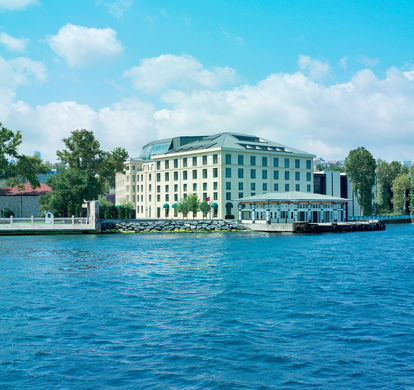
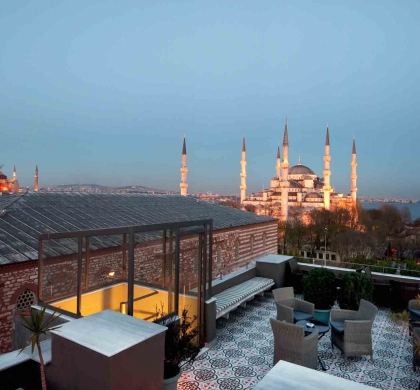
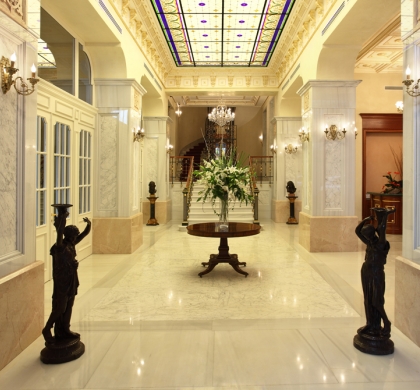
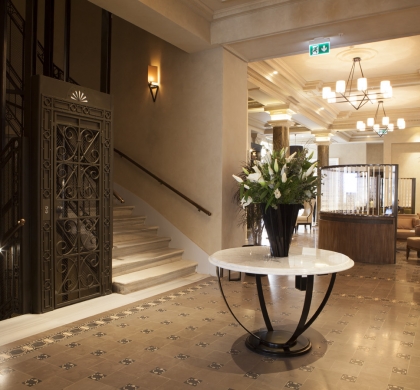

Cornucopia works in partnership with the digital publishing platform Exact Editions to offer individual and institutional subscribers unlimited access to a searchable archive of fascinating back issues and every newly published issue. The digital edition of Cornucopia is available cross-platform on web, iOS and Android and offers a comprehensive search function, allowing the title’s cultural content to be delved into at the touch of a button.
Digital Subscription: £18.99 / $18.99 (1 year)
Subscribe now